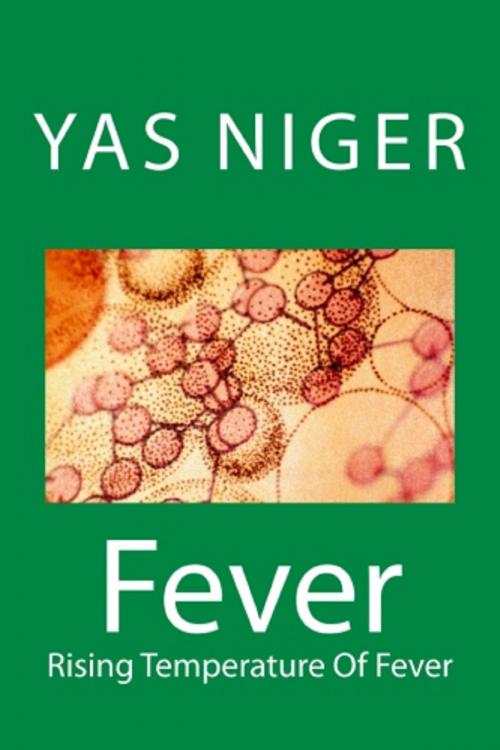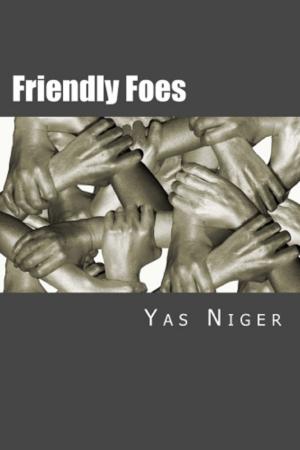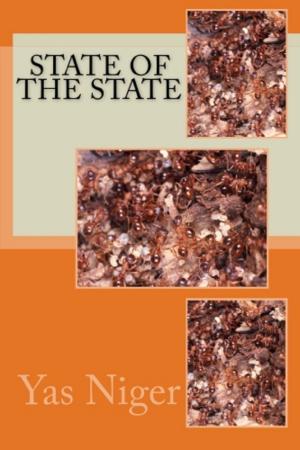Fever: Rising Temperature of Fever (Book II)
Nonfiction, History, Africa, Fiction & Literature, Cultural Heritage| Author: | Yas Niger | ISBN: | 9781311853608 |
| Publisher: | Yas Niger | Publication: | April 2, 2014 |
| Imprint: | Smashwords Edition | Language: | English |
| Author: | Yas Niger |
| ISBN: | 9781311853608 |
| Publisher: | Yas Niger |
| Publication: | April 2, 2014 |
| Imprint: | Smashwords Edition |
| Language: | English |
In this tale everything is like everything, just as everybody likens everyone else, in a mythical sense. Everything makes up everyone and everyone is made of everything, in one blur oddity of an ironic distinctively same clarity of nature. It tells of the huge promise a blessed land points to, it tells of the many bodies buried and alive, that had and are, waited and waiting, for the satisfaction they ever sought, but never got and most likely will never get, as one entity.
The story is about a family that expressively made up a nation that approved and doled out its version of justice to all its number, but appeases none of them really. It fostered its own colossal failure in combined efforts. It made that of its constituent membership insignificant and trivial in an unimportant way. This is the historical tale of the Nigerian nationhood.
There is the honest triumph of labour, the hugely varied effect of wit against diverse hardship, and the seeming effectiveness of corruption and varied segregation where all other approaches have failed. But the lingering damage these leaves in their wake is too tasteless to be edible and yet must be wholly eaten. There is the highly proclaimed effect of diverse personalities on their orientations, and these aren’t disguised in the blatant tribalism, regionalism and ethnicity that surround it all. Everything merges into vastly imitated robustly parochial ways, too alike to be sincerely different, revealing a rich nation with a fever it resembles.
The rising temperature of Fever is the growth of the idea of a modern nationhood in the larger Niger river area of west Africa, against tough odds. The natives bloom in the presence of British colonialism. In the wilderness the people walked in amidst conflict, their dreams mixed up with those of their many different neighbours and they stayed fast. They belatedly discover they had wronged each other by ignoring these glaring contrasting differences. Greed and power cooked up a mixture and the real small people, with no significance to anyone but themselves, dissolve in the concoction of national stews not quite of their dreams.
In this tale everything is like everything, just as everybody likens everyone else, in a mythical sense. Everything makes up everyone and everyone is made of everything, in one blur oddity of an ironic distinctively same clarity of nature. It tells of the huge promise a blessed land points to, it tells of the many bodies buried and alive, that had and are, waited and waiting, for the satisfaction they ever sought, but never got and most likely will never get, as one entity.
The story is about a family that expressively made up a nation that approved and doled out its version of justice to all its number, but appeases none of them really. It fostered its own colossal failure in combined efforts. It made that of its constituent membership insignificant and trivial in an unimportant way. This is the historical tale of the Nigerian nationhood.
There is the honest triumph of labour, the hugely varied effect of wit against diverse hardship, and the seeming effectiveness of corruption and varied segregation where all other approaches have failed. But the lingering damage these leaves in their wake is too tasteless to be edible and yet must be wholly eaten. There is the highly proclaimed effect of diverse personalities on their orientations, and these aren’t disguised in the blatant tribalism, regionalism and ethnicity that surround it all. Everything merges into vastly imitated robustly parochial ways, too alike to be sincerely different, revealing a rich nation with a fever it resembles.
The rising temperature of Fever is the growth of the idea of a modern nationhood in the larger Niger river area of west Africa, against tough odds. The natives bloom in the presence of British colonialism. In the wilderness the people walked in amidst conflict, their dreams mixed up with those of their many different neighbours and they stayed fast. They belatedly discover they had wronged each other by ignoring these glaring contrasting differences. Greed and power cooked up a mixture and the real small people, with no significance to anyone but themselves, dissolve in the concoction of national stews not quite of their dreams.















